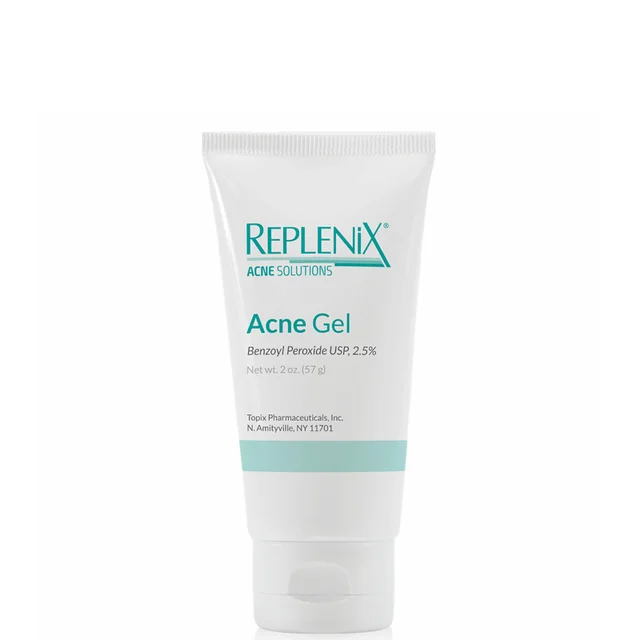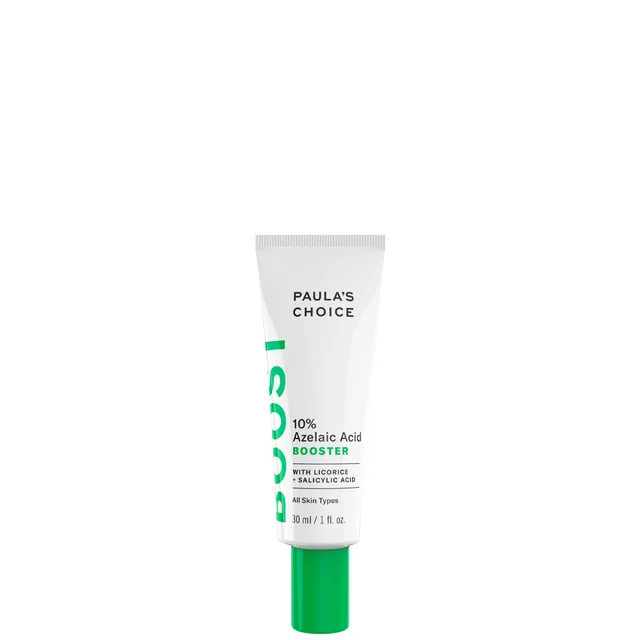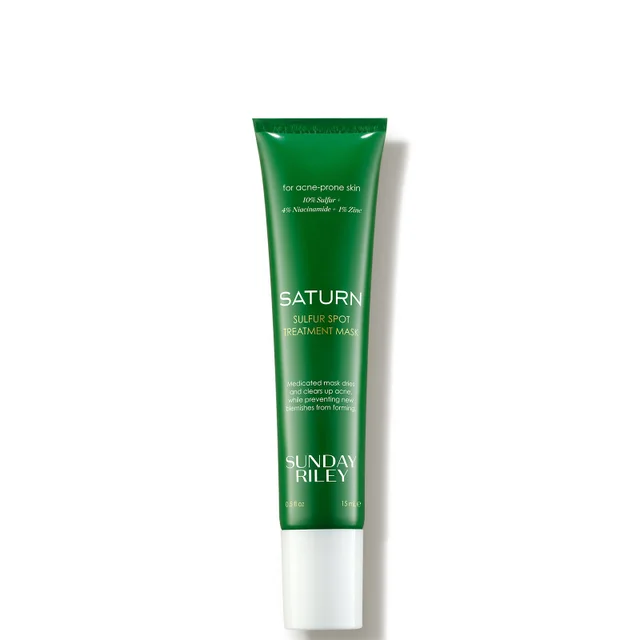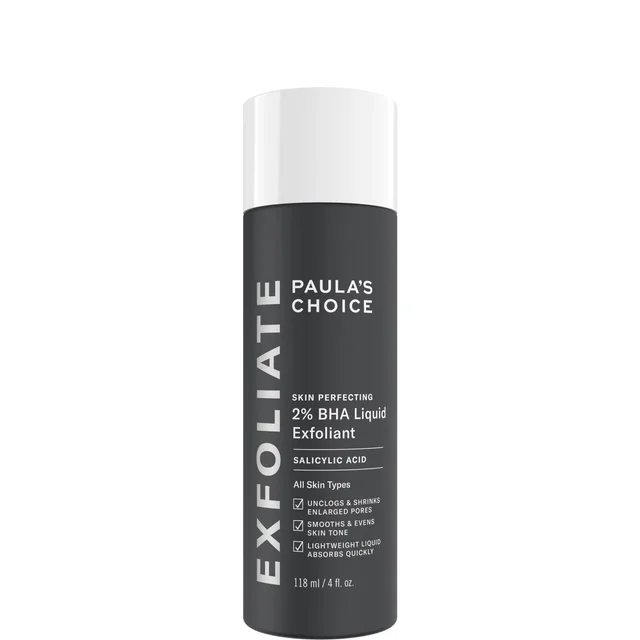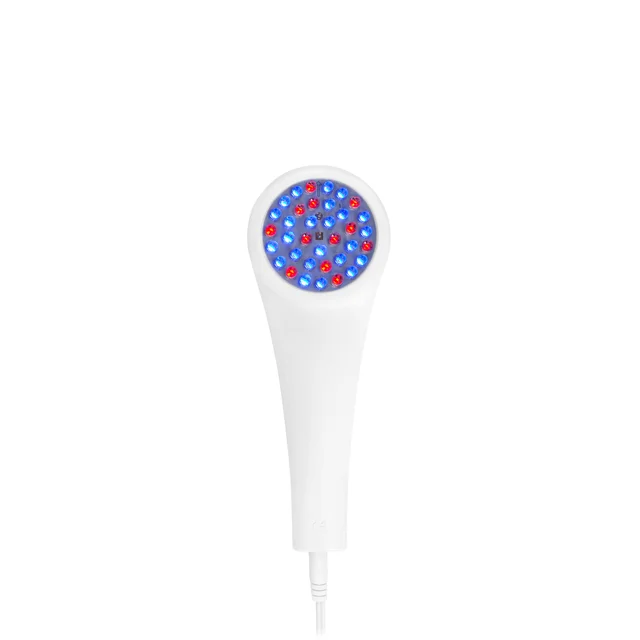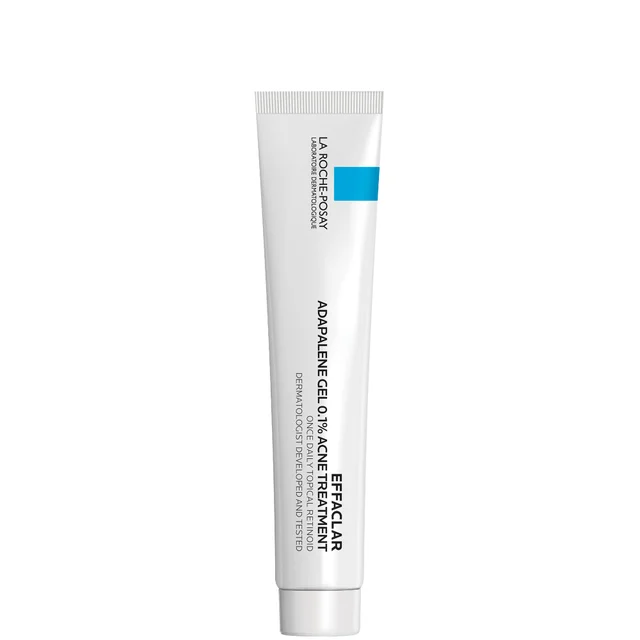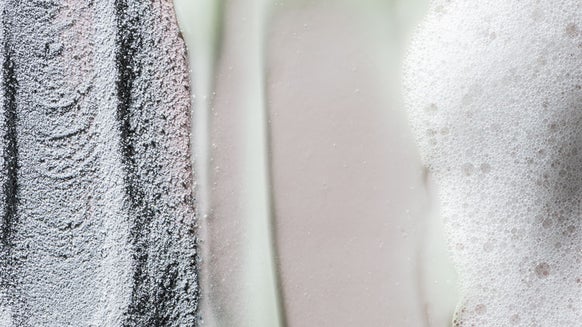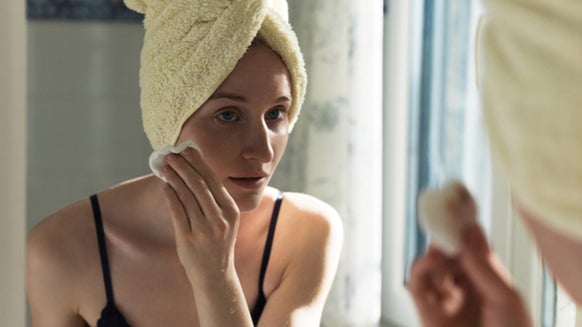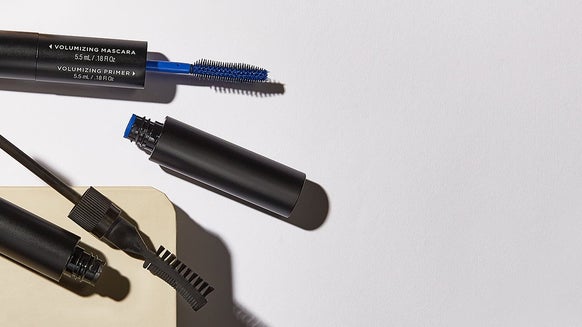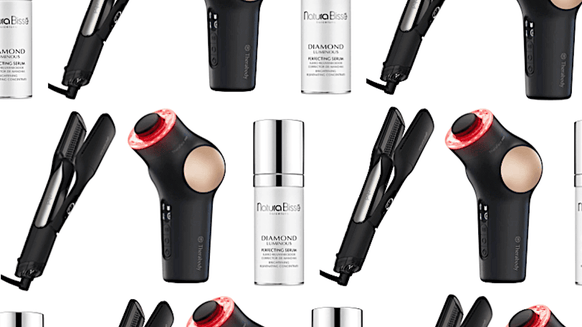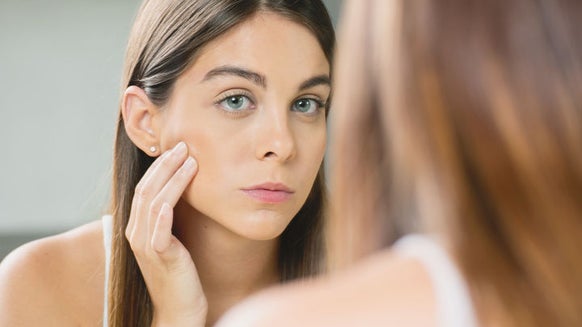7 Things You Didn’t Know (But Absolutely Should) About Your Breakouts
The fun thing about acne—other than absolutely nothing—is that it’s consistently…inconsistent. The products that break you out may be fine for your best friend, while the treatments that clear your skin could be a nightmare for someone else’s. So before you buy another product or listen to another friend’s advice (sorry, Mom), make sure you know these seven acne facts, first.
1. Not all acne-fighting ingredients do the same thing.
Throwing a bunch of acids and toners at your face won’t help your zits if you’re not using the right kind. A quick breakdown of the most effective treatments:
Salicylic acid: Exfoliates pores to keep them from clogging; best for whiteheads, blackheads and “classic” zits. Try: Tula Clear It Up Acne Gel Benzoyl peroxide: Kills acne-causing bacteria; best for inflamed, tender pimples. Try: Replenix Acne Gel Benzoyl Peroxide 2.5% Azelaic acid: Decreases inflammation and kills bacteria; best for cystic acne and rosacea. Try: Paula’s Choice 10% Azelaic Acid Booster Sulfur: Breaks down dead skin cells; best for oily skin. Try: Sunday Riley Saturn Sulfur Mask
2. Your wine-and-cheese life could be messing with your face.
“Diets high in sugar can actually trigger breakouts,” says Cheri Frey, M.D., a board-certified dermatologist based in Maryland. And, yes, that includes foods like dairy, alcohol and refined carbs, which are all processed by your body like sugar. “Your body then releases insulin and insulin-like growth factors in response, setting off a system-wide inflammatory cascade that can manifest on your skin,” says Dr. Frey. Fun! If you’re concerned, try cutting back on dairy and simple sugars for three to four weeks and see how your skin responds.
3. Your acne face wash can trigger more acne.
This one feels extra unfair, but many acne-fighting cleansers are filled with sulfates (i.e., harsh detergents, like sodium lauryl/laureth sulfate) that can dry out and irritate your skin barrier, leading to rashes, irritation and breakouts—even if the cleanser is medicated. Mona Gohara, M.D., a board-certified dermatologist and associate clinical professor of dermatology at Yale School of Medicine suggests trying a creamy, sulfate-free cleanser (like La Roche-Posay Hydrating Gentle Cleanser) and an acne-treating toner, such as Paula’s Choice 2% BHA Liquid.
4. Going 100 mph can throw off your skin.
Bodies (and skin!) crave a mundane life. Even two days of working late, skipping sleep and freaking out can trigger an onslaught of zits. “When you’re stressed, your cortisol levels spike and crank up the production—and inflammation—in your oil glands, leading to clogged pores and breakouts,” says Dr. Gohara.
5. Light therapy devices really can help.
There are two main types of LED light therapy: red and blue, both of which are available at a dermatologist’s or facialist’s office (at strong levels), or at home (at weaker levels). “Red light can be anti-inflammatory, while blue light is thought to kill acne-causing bacteria,” says Dr. Frey. Research is mixed on just how effective light therapy is on its own, but when added on to your daily acne routine, at-home devices, like LightStim, can be helpful in curbing inflammatory acne over time.
6. Hormonal acne plays a different game.
If your breakouts are primarily hormonal (i.e., inflamed, cystic and/or located around your chin and jawline), typical over-the-counter acne treatments won’t do much, sadly. You’ll need to work with your derm who can create a prescription routine to help regulate acne-causing hormones. In the interim, try adding adapalene (try La Roche-Posay Effaclar Adapalene Gel 0.1%) to your routine. It’s a prescription-strength retinoid specifically formulated to treat acne. Since it’s relatively strong, start slow (every three nights for three weeks, then every two nights for two weeks, then every night indefinitely).
7. Your zits may not be acne at all.
At least, not in the classic sense. “A lot of patients I see think they’re dealing with really stubborn breakouts, but they actually have fungal acne that’s caused by an overproduction of yeast on their skin,” says Dr. Gohara. Fungal acne tends to look pretty uniform: a bunch of tiny, red, sometimes itchy bumps, but they don’t respond to regular acne treatments (and can actually get aggravated by them), which means you’ll need to chat with your dermatologist to get a prescription anti-fungal cream.

From the latest hair and makeup trends to the best solutions for your skin issues, we've got all your beauty concerns covered!
